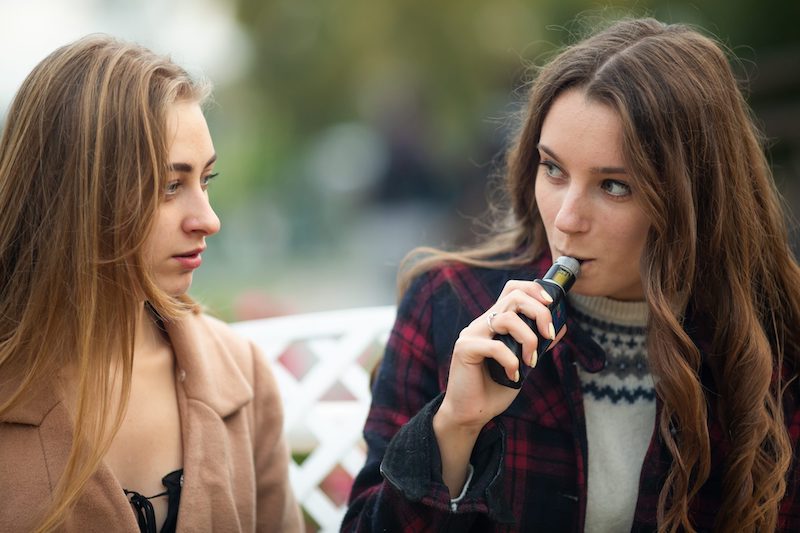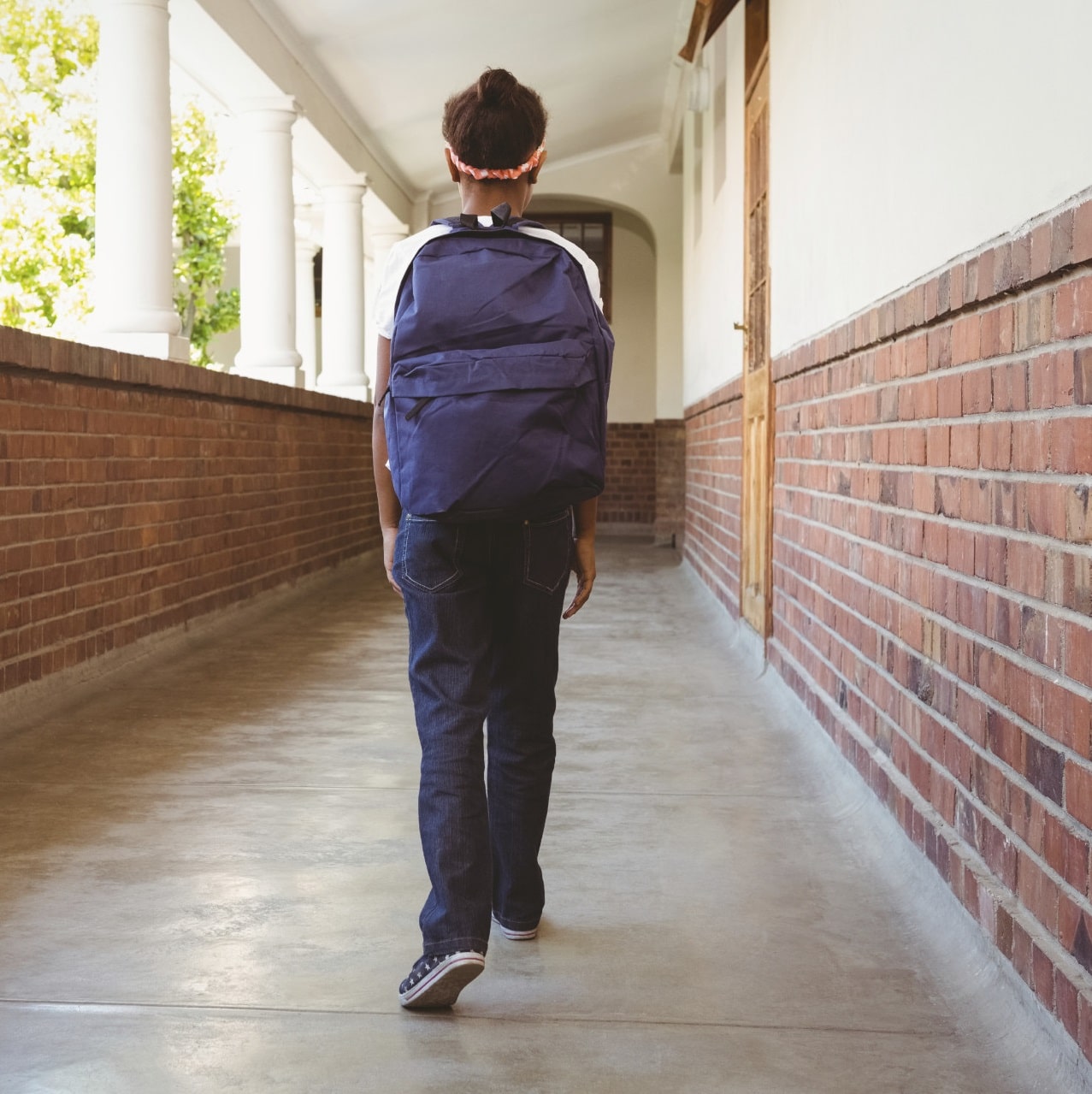

By Brianna McCabe
You don’t have to dig deep into a Google search for ‘is secondhand cigarette smoking dangerous?’ to find a scientific study or credible article reinforcing that it is, in fact, a massive risk to your health.
…But what about secondhand vaping?
According to a Centers for Disease Control and Prevention (CDC) study, 40% of U.S. adults believe that children’s exposure to secondhand aerosol from e-cigarettes causes only some or little harm—and 5% think it causes no harm at all.
“Vaping and secondhand vaping is just as dangerous,” clarifies Nader Nakhleh, D.O., a board certified pediatric pulmonologist. “Now it is our mission as experts to change the conversation around vaping from being a ‘better’ alternative to smoking to actually being equally as detrimental.”

Is there a difference between secondhand smoking and secondhand vaping?
“Secondhand smoking is the process whereby a bystander inhales both the smoke that comes from burning either a cigarette or a pipe and the smoke that is exhaled by the smoker into the air,” explains Dr. Nakhleh. After prolonged exposure, the clinician notes that a secondhand smoker might face the same effects that a firsthand smoker might experience, including:
- Irritation of the lining of the airways which can lead to chronic cough
- Difficulty breathing
- Cancer
- Lung diseases such as COPD, emphysema and asthma
- Heart disease
- Respiratory and sinus infections
In fact, a report by the U.S. Surgeon General noted that between 1964 and 2014, 2.5 million people died from exposure to secondhand smoke.
Vaping is a little different given that it doesn’t ‘burn’ and there is no ‘smoke,’ Dr, Nakhleh shares, but the process of inhaling these secondhand fumes is essentially the same. “All e-cigarettes heat up this inner battery-charged chamber that is then used to heat up a juice or e-liquid at very high temperatures—which ultimately releases this vapor,” he continues.
Despite the fact that it’s not traditional smoke, the expert clarifies that the same “bad stuff” the person is inhaling is the same “bad stuff” that the person is exhaling into the air. “Allowing this vapor to enter your body—even as a bystander—puts you at a risk for health concerns similar to those associated with secondhand smoking,” he says.
What is in vape juice (or e-liquid)?
“One of the biggest problems is nicotine,” confirms Dr. Nakhleh. “You can get hooked almost immediately and this sets up what I describe as a very long, unwanted relationship.”
In addition to nicotine, the Surgeon General reports that vape juices can contain the following ingredients:
- Nicotine
- Ultrafine particles that can be inhaled deep into the lungs
- Flavor additives such as diacetyl, a chemical linked to serious lung disease
- Heavy metals, such as nickel, tin and lead
- Formaldehyde (embalming fluids)
- Benzene (found in car exhausts)
“There’s also this fear of the unknown,” admits Dr. Nakhleh. “There’s chemicals in these devices (some of which are unregulated) and we simply just don’t know what people are putting into their bodies. It makes it difficult to explain to patients who are hospitalized as to what is going on, and it’s even more difficult to treat it.”
Who is at risk?
Dr. Nakhleh warns that all bystanders are at risk. “Even the healthiest of individuals have fallen quite ill from vaping and inhaling these secondhand fumes—which is frightening,” he says.
One group of individuals that Dr. Nakhleh is particularly concerned about is teenagers. Data from the U.S. National Youth Tobacco Survey found that about one-third of middle and high school students were exposed to vaping aerosols in 2018. “The push we are trying to get across now is to educate the community and schools. It’s way too common for comfort,” he adds.
Other individuals that should be particularly mindful of inhaling secondhand smoke or vapor include:
- Asthmatics
- Elderly individuals
- Patients with chronic medical conditions (such as COPD)
Why are the potential health effects of vaping and secondhand vaping still in question?
“We cringe nowadays at the thought of doctors standing in patient rooms smoking cigarettes or passengers on airplanes puffing away, right?” says Dr. Nakhleh. “I know that I think to myself, ‘They should have known better.’ It turns out that it took a lot of time and a lot of pushback against a strong industry with heavy advertising skills to eventually shed light on just how dangerous those products were and still are.”
“There’s no doubt in my mind that as we continue to explore this relatively new phenomenon and accumulate scientific data, more and more people will understand the dangers of vaping,” he continues.
Dr. Nakhleh is a physician at Hackensack Meridian Health Medical Group, a network of more than 1,000 physicians and advanced providers at over 300 practices throughout New Jersey. Our care network can help you better manage your health.
Next Steps and Resources:
- Get a lung cancer screening.
- Lung.org – Health Effects of Secondhand Smoke
- Science Daily: Exposure to Secondhand E-Cigarettes Increasing Among Young People
- Surgeon General: E-Cigarette Use Among Youth and Young Adults
The material provided through HealthU is intended to be used as general information only and should not replace the advice of your physician. Always consult your physician for individual care.
Find a doctor near me

COVID Vaccine and Children: What to Know

What Are the Effects of Cyberbullying?

When Your Child’s Grades Drop
